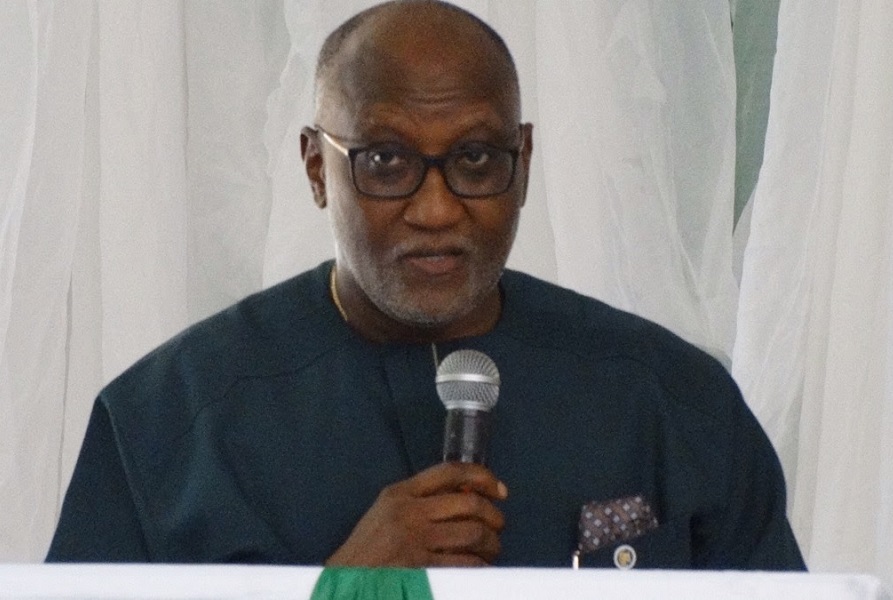Public policy debates in Nigeria are no longer as intense and invigorating. Politicization of most issues make critical national debates unduly emotive and slanted. Lack of patriotism has been blamed for this worrying development. Some blame diminished civic education and orientation.
Blame on the educational angle is gaining some validity. Just as Nigerians have lost their reading culture, so too have they lost the skills for constructive debate and criticism. Interestingly, some policy experts are pointing towards Nigeria’s troubled education sector for cause and effect.
Unsurprisingly, Oseloka H. Obaze, a frontline PDP governorship aspirant in the November 18 governorship elections in Anambra State, has joined in the debate, by calling for a vivid rethink of Nigeria’s education sector.
Obaze, the immediate-past Secretary to Anambra State Government, who made the call during an interactive programme on Wednesday, said “education is the basis of a civilized and developed world” and that proper investments in education will help alter the ignorance and myopic attitude of citizens on critical issues.
The public policy expert opined that the numerous challenges facing Nigeria today can be traced to the diminution or lack of quality education and unemployment. According to him, “Uneducated, and unemployed youths are more amenable to violence, cultism, kidnaping, terrorism and other vices, as they seek to take their revenge on the society. To change the trajectory, we must target and meet the United Nations’ recommended 26% of the budget for education. Only Sokoto and Kwara states have met this threshold.”
Obaze also advocated setting aside 10% of the 26% allocated to education to support Mission and private schools. His argument being that private and mission schools “also train our children.” He called on policy makers to make access to the Universal Basic Education Commission (UBEC) fund more seamless, thus freeing up more resources to address unmet needs in the education sector.
Recalling that history had been removed briefly from Nigeria’s school curriculum before being reinstated in 2016, Obaze said such policy moves predisposes the country to repeating past mistakes, but expressed happiness that the subject has been reintroduced. Quoting from his forthcoming book Prime Witness, he said “History in our schools was ended out of convenience and lack of political will, by those concerned that Nigeria’s history remains divisive. They got it wrong. It is the lack of Nigeria’s history and lessons drawn therefrom that will eventually prove to be our national ruination. Gladly, in the latter part of 2016 history was reintroduced.”
Obaze expressed worries that the content, manner of delivery, and the environment of teaching and learning in Nigeria today does not prepare the youths to be globally competitive. Echoing expert opinion, he said “The system of delivering qualitative and affordable education is not optional; and that ‘the practice of learning only differentiated activities’ as practiced in Nigeria is no longer valid.”
As regards ameliorative measures, Obaze said, “Proper education, exposure, mentoring, training and access to global best practices are means of making our youths globally competitive. Our Students must stay in school and finish school; engage in trades where they are skilled and globally employable, and we must provide them support to commence their start up industries/companies.”
Obaze noted also that population increase and prolonged lack of focus and plan has resulted to a situation where Government alone cannot educate all the children and ensure that none is left behind. He regretted that Nigeria alone has 11 million out of school children – the highest in the world. He said the government must call on Missions and private individuals to assist.
Continuing, Obaze said “We must also pay acute attention to vocational training and professions that require certification rather than university degrees. Mid-level manpower or blue collar skilled employees are imperative to our development. We must end the dichotomy between formal university degrees and HND. Perhaps we should assign an equal pay classification to skilled professionals with technical know-hows as an incentive.”
On the menace of examination malpractice, Obaze remarked that “the society must mete out agonizing reprisals on those who destroy the social fabric of the society by teaching the youths that it is okay to cheat their way to the top. Moreover, If you get half-baked teachers to teach our kids, you get half-baked students. We must have people, education inspectors, who pay surprise visit to schools to evaluate teachers and inspect facilities.”
The PDP governorship aspirant concluded by saying that, “Our collective role is to join hands in promoting education and through it making our society better for our posterity. Government, for its part, if it really wants to serve the people, must continue to respond to unmet needs and to address critical sectors like education, infrastructure and power, where the society at large continue to experience immense deficits.”



